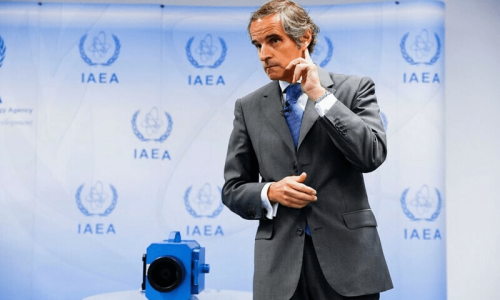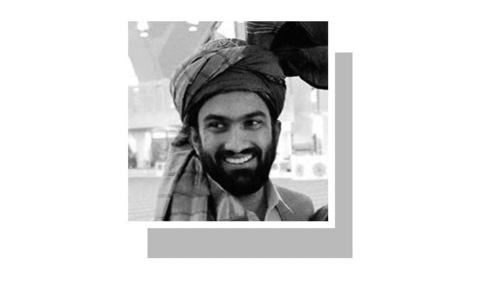Urdu poetry is indebted to three necessary and essential personalities Ghalib, Iqbal and Faiz. The present article draws upon the opinions of Faiz that were published in Sheema Majeed`s book Iqbal Faiz Ahmed Faiz.
Faiz begins with a quotation from Coleridge, `No man was ever yet a great poet, without being at the same time a great philosopher` (but not an abstract thinker). Faiz asserts that like all great poets of affirmation, Dante, Milton and Goethe; Iqbal was not an abstract thinker. Like them he was closely involved with affairs of the social world. He sympathised with the them and assimilated many elements form Western philosophic and scientific thought e.g. Hegel`s concept of man and history being `man`s own work`; Kant`s `Critique of Pure Reason`, Marx`s denunciation of capitalism and class exploitation, Natchez`s rejection of liberal bourgeois morality and his glorification of the `will to power`, Bergson`s `Evan Vital` in defence of validity of intuitive knowledge and Einstein`s four dimensional time-space continuum etc. As against the general notion, Iqbal`s perfect man (Mard-i-Kamil) disengages him from Nietzsche`s superman, for Iqbal`s categorical imperative in fact rules out all forms of nationalist chauvinism, imperial domination, racial discrimination, social exploitation and personal greatness, since all of these effectuate debasement and perversion in the singularity of human personality. Again, Iqbal propounded the idea of Mard-i-Kamil even before he had read about Natchez`s superman, as he claimed in his letters.
According to Faiz, Iqbal is a humanist not only in the formal but also in literal sense of the word. For him no form of reality is so powerful, so inspiring and so beautiful as the spirit of man` (as postulated by Iqbal in his `Reconstruction of Religious Thought in Islam`). Probably first time in the history of mankind, someone like Iqbal takes a positive and promising stance on Adam`s exit from heaven. To him this triggered a productive mode for an otherwise lethargic heavenly man. The fall of Adam was not a falling from grace but the opposite of it; this was rather an upsurge, his ele
vation to the position of a `co-worker` with God. Faiz emphasises that the creation is still continuing; the universe is not a complete factor and thus the creative role of man progresses in companionship with that of God.
To Faiz, Iqbal`s poetry is full of pragmatism, so he hardly mentions about the other world which is actionless, and hence entirely irrelevant to his thought. Unlike Schopenhauer, Iqbal remains optimistic while dwelling upon his endeavours. By the same token, there is no mention of any reward or punishment in the hereafter. He is in fact a poet of struggle and evolution. Particularly in the backdrop of man being a co-worker with nature, he cannot sit idle or lacklustre. However, since he is bound to carry forward the productive process; man is faced with hostile forces which are within and outside him. Here Iqbal speaks of man`s loneliness because man is pitted against so many enemies, the forces within him, like greed, cowardliness, selfishness, exploitation and the outside forces `inanimate hostile nature`. To Faiz `he speaks of man as an atom of passion set against entire universe`. Man is the only creature who accepted the challenge of creation. The grandeur of man the tragic hero lies in his acceptance of this challenge that is his destiny of unending struggle of perpetual frustration and fulfilment to attain the wholeness of God.
Faiz confesses that Iqbal`s poetic artistry has never been given a due weightage. Here he gives justification that Iqbal himself was deadly against the art for the sake of art, so he did not deliberate on mere poeticism. Thus the reader cannot study his art, style, technique or his poeticism in isolation from his `theme`. In fact Iqbal`s poetry is not only revolutionary but evolutionary as well. Faiz continues, first thing that strikes in Iqbal`s poetry is the contrast between his style and expression of earlier works vis-Ã -vis his later mature works. The second striking thing, in spite of these differences, is the continuity factor dominant in all his works. a The sense of solemnity and earnestness remains a common factor and the same persists throughout his works till end. There is another aspect of this continuity, the element of quest and inquiry, a persistent desire to know and explore the secrets of reality.
This desire to quest and inquire breeds the current of evolution. Faiz categorises the elements of evolution into four parts. First, Iqbal`s early style is Persian-ised, under the influence of Bedil, Nazir and Ghalib (and Ghalib`s style is influenced by Amir Khusrau) and the school of Indo-Persian poets that was popular with the intelligentsia in the beginning of the 20th century. Here the style is a bit florid, diffused and undefined. In fact his pure style is concerned with the progression of his work from ornateness and ornamentation to austerity, from diffuseness to precision and finally from rhetoric to epigram. In later works, the ornamentation is further cut out, there is almost no imagery, rather the sensory or the perceptive approach becomes purely a cognitive, intellectual, austere and precise deliberation. Faiz reckons this process a process of reduction or contraction.
Faiz discusses about second process that is expansion where Iqbal begins with himself, talks about love, grief, loneliness, disappointment, and from here progresses to the Muslim community, then to Muslim world (in the second half of Bang-i-Dara), from there to mankind and ultimately to universe. The third phase is of integration, between nature and man where he uses metaphors of kirmik-i-shab (firefly), shaheen (eagle), the moon and the sun, etc. The fourth progression in his work is the transition within his emotional climate like we see the use of word mohabbat (love) almost forbidden in his later works and is replaced with `intuitive passion` or ishq. According to Faiz, though Iqbal is less concerned with the superficial ornamentation of verse, yet he equally compensates for the absence thereof through which poets generally win attraction. In the context of Iqbal, this is a very fascinating subject and very little study has been done on it. With respect to Iqbal`s compensating for lack of ornamentation, Faiz quantifies a few additions to Urdu verse where Iqbal remains a pioneer.
First is the use of proper names; an addition which is completely Iqbal`s own. Apart from Majnoon, Farhad, Laila, and Shirin; no proper names had been used in poetic vocabulary before Iqbal. Iqbal used Kufa, Hijaz, Iran, Furat, Isphahan, Samarqand, Koh-i-Adam, Nawah-i-Kazima, Qurtaba and Khoon-i-Hussain, etc.
Second thing he did is the use of words which are simple but unfamiliar but not difficult or obscure. These include words like nakheel, talson and parnian. Then he introduces unfamiliar meters as well, for instance in Masjid-i-Qurtaba he has used at least half a dozen meters which were not used in Urdu poetry before and which he introduced for the first time. Thus he creates a sense of familiarity through unfamiliar meters, unfamiliar words, proper names, and nevertheless through a very contrived pattern of sounds. To Faiz, no other Urdu poet has used such patterns of consonantal and vowel sounds deliberately as Iqbal has done. The only other poet who did so is Hafiz in Persian, however, in Urdu, Iqbal is unique.









































Dear visitor, the comments section is undergoing an overhaul and will return soon.